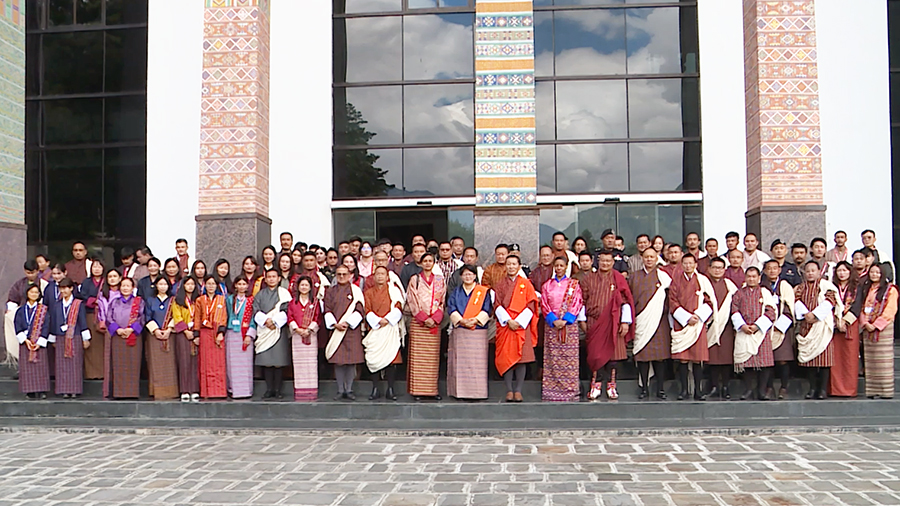
Observing World Mental Health Day today, The PEMA Secretariat and other relevant stakeholders called for the need to strengthen a multi-sectoral approach to prevent and focus on people-centred mental health care. This is in keeping with the World Health Organisation’s Report 2022 that urges a multi-sectoral approach for people battling mental health conditions. The report highlights that people with mental health conditions need services beyond clinical treatment. According to the WHO’s report, about one in eight people in the world live with some form of mental disorder.
Stakeholders such as the Education and Skills Development Ministry, UNICEF, WHO, the Health Ministry, health service providers, the police, and Civil Society Organisations such as RENEW and Bhutan Cancer Society attended the programme.
At the event, The Pema Secretariat said cooperation among these stakeholders and others is integral in improving the well-being of people living with mental health conditions.
According to WHO’s report, as the factors determining mental health are multi-sectoral, interventions to promote and protect mental health should also be delivered across multiple sectors.
“There is a mistaken understanding of absolute ownership that mental health is taken care of only by counsellors, or psychiatrists, or mental health officers. No, I think it is important for every stakeholder, every agency, and every individual to come together and work together to address mental health issues in the country. If we keep the task to only one agency, then the other agencies will feel that it is not their responsibility. So, that absolute ownership does not work. Now it is time for us to move over to task sharing,” said Kezang Drukpa, the Head of the Response Service Division under The PEMA Secretariat.
He added that mental health matters at the individual level, at the family, and at the community level.
The Pema Secretariat and the Education and Skills Development Ministry also initiated the Health and Wellbeing programme to ensure the mental well-being of school-going children.
In the pilot phase of the programme that began in May, more than 1,400 students in Thimphu were screened for mental health conditions.
Meanwhile, the number of Bhutanese with mental health conditions coming forward to seek medical interventions has increased over the years.
Doctor Damber Kumar Nirola, a psychiatrist with the National Referral Hospital said that this is due to increased awareness among the public. He added that it is mostly people with anxiety or panic disorder who come to seek help.
Today, the country has only four psychiatrists, five regular clinical counsellors, and four interns at the National Referral Hospital.
In addition, the Health Ministry has deployed certified clinical counsellors in 14 districts as of now.
The health minister said in districts without certified clinical counsellors, the ministry is training health assistants on mental health care.
Singye Dema
Edited by Phub Gyem









